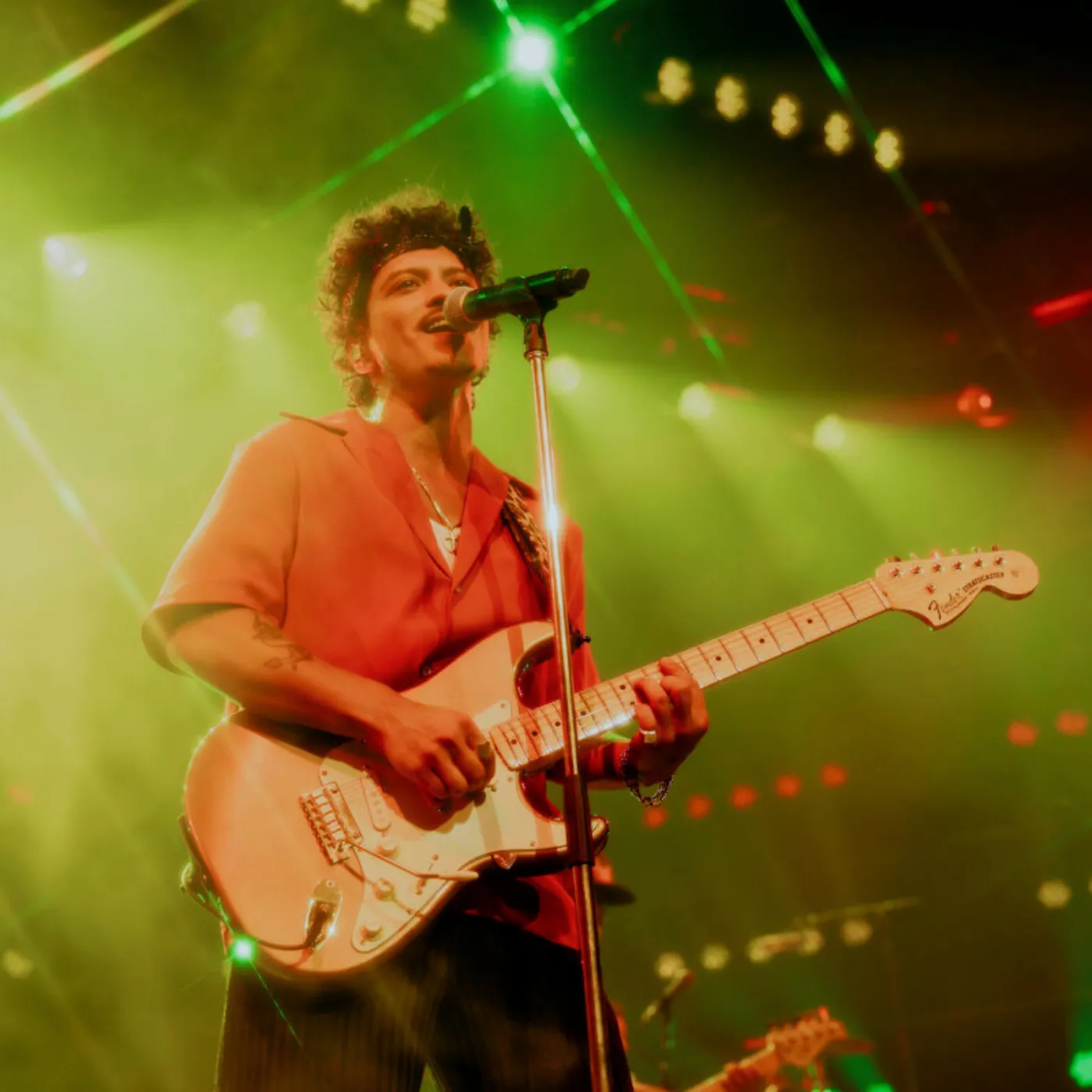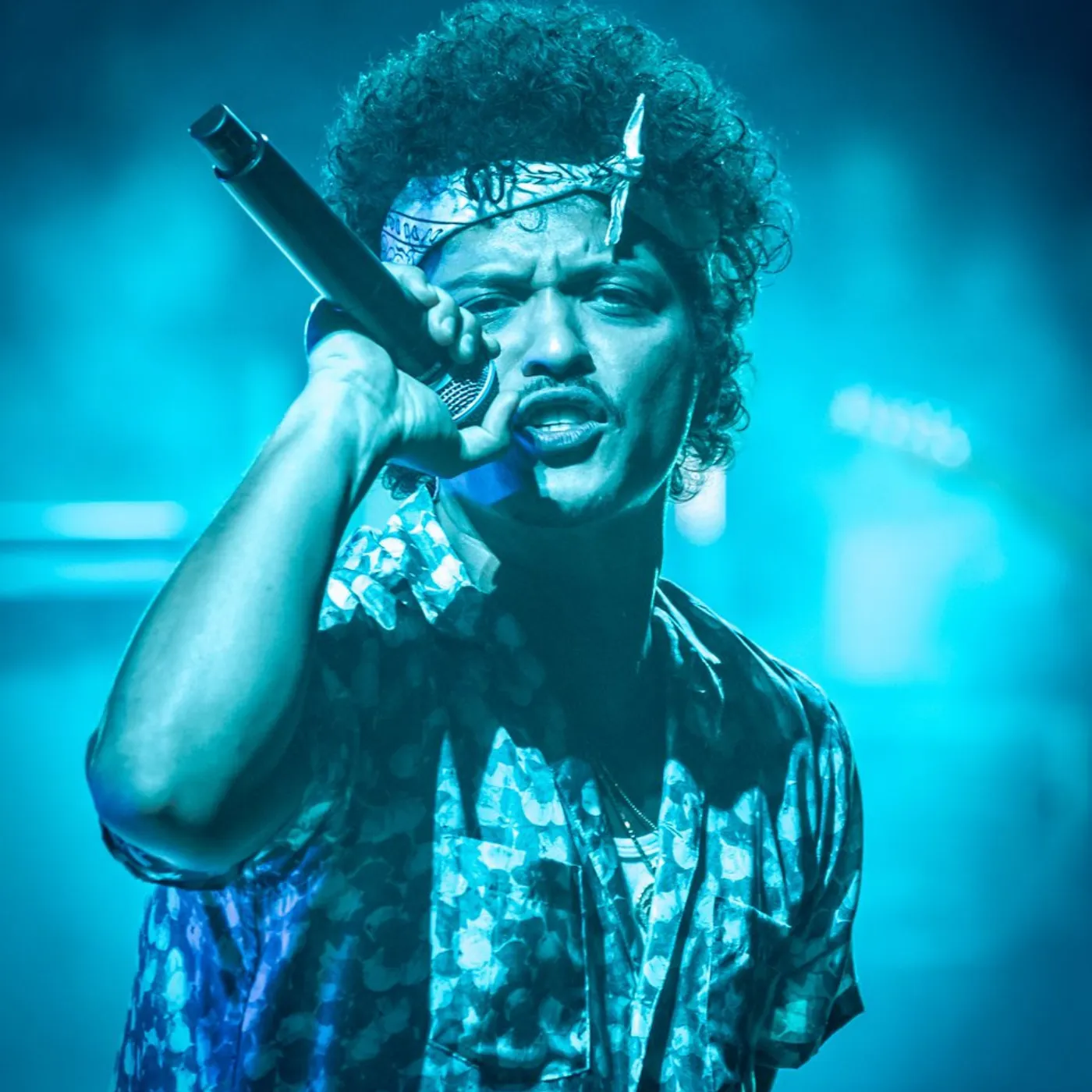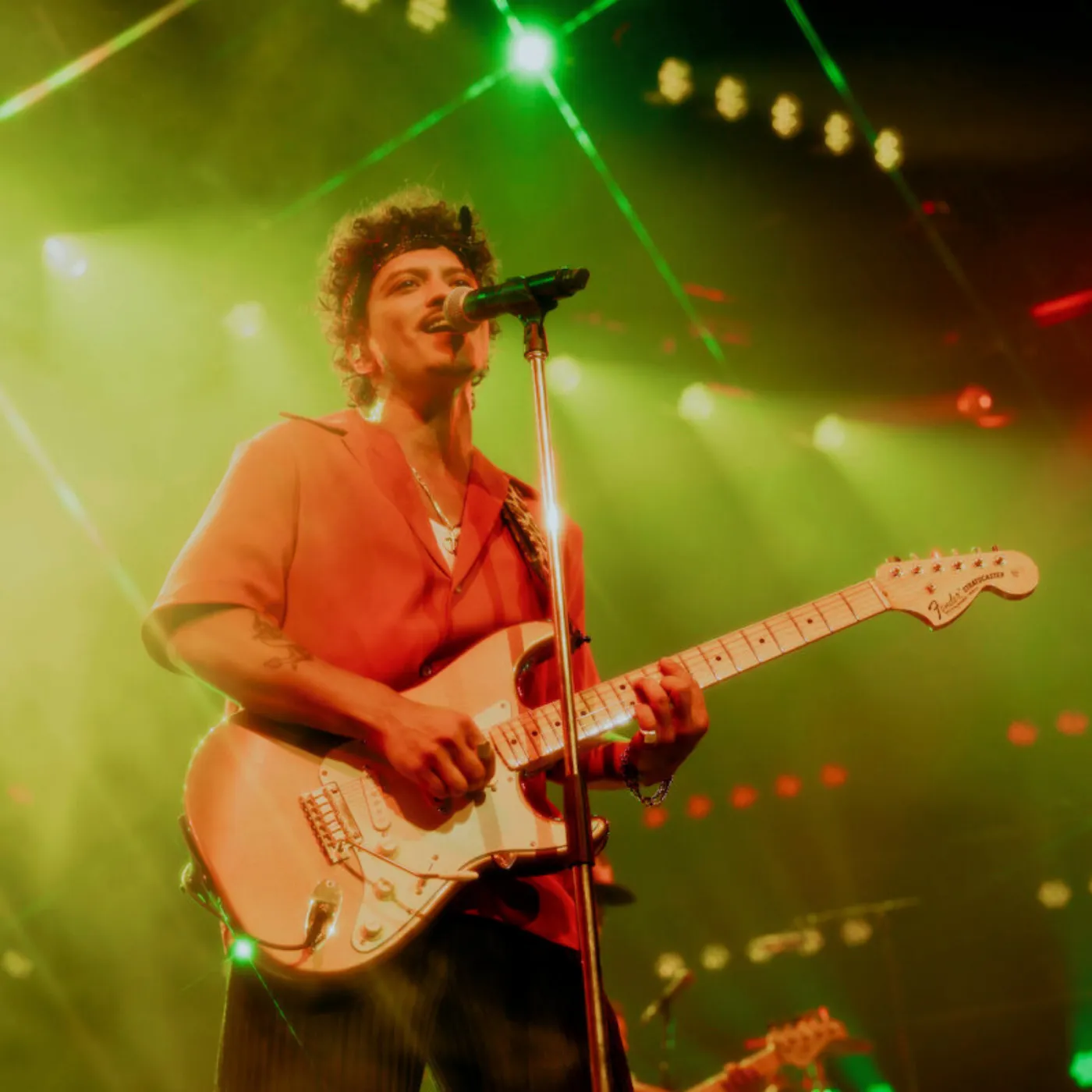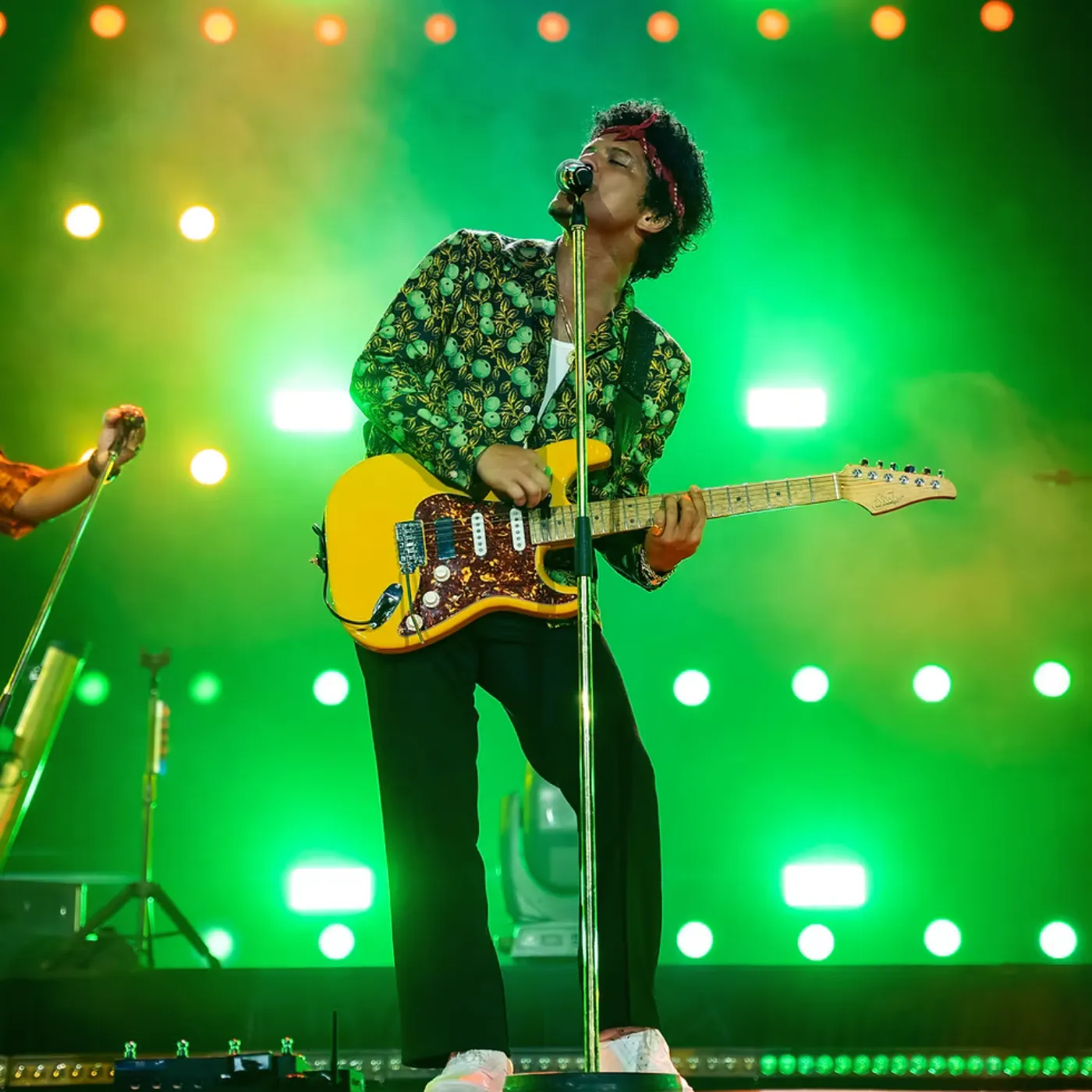

Starbucks Just Did Something Wild—Bruno Mars Is Headlining in Total Secrecy
In a move that has the internet both stunned and slightly outraged, Starbucks confirmed that Bruno Mars will headline their exclusive 2025 Leadership Experience event in Las Vegas, performing tonight at a private closing ceremony attended only by company executives, employees, and hand-selected guests. As announced by Starbucks Chairman and CEO Brian Niccol, the performance is the official grand finale to a weekend of internal brand celebrations, strategic updates, and elite networking behind closed doors.

And no—this isn’t a joke.
No livestream. No fan access. No ticket sales. Just one of the biggest stars on Earth, singing in a ballroom where the general public isn’t even allowed within fifty yards of the valet.
When a Pop Icon Meets a Global Coffee Giant
“We wanted to end this year’s Leadership Experience with something unforgettable, something that speaks to what Starbucks stands for—elevating culture, elevating connection,” Niccol reportedly said during the announcement. That statement, paired with the blinding reveal of Bruno Mars as the closing act, set off a ripple effect through entertainment forums and corporate gossip circles alike.
Bruno Mars, known for his electrifying performances, Grammy wins, and timeless throwback funk-pop sound, has performed in countless world-class venues—from the Super Bowl Halftime Show to sold-out arenas. But a private corporate event for a coffee chain? That’s… different.
And people are noticing.
Why This Event Is Raising Eyebrows
On the surface, this is a feel-good moment. A massive global brand celebrates its internal leadership with a private concert. But online? The narrative is shifting—and fast.
Across Reddit threads, X (formerly Twitter), and fan pages, users are questioning everything from the cost of the event to the intentional secrecy surrounding the performer. Some fans expressed frustration over how one of the world’s most beloved artists is doing a full set for executives and HR managers while millions of loyal fans remain shut out. “I’ve bought 4 Starbucks drinks this week and now I find out they booked Bruno for a private concert?? Where’s my invite?” one user posted.
Others are pointing out the growing trend of corporations ‘hoarding culture’—a phenomenon where big brands use exclusive access to celebrities as branding tools for internal or B2B clout rather than public engagement.
No Leaks. No Footage. Just Vibes?
As of this afternoon, no official setlist has been announced. No stage photos have leaked. Attendees were reportedly asked to place their phones in locked pouches upon entering the event venue—a growing trend among high-profile performances and controversial gatherings.
“This isn’t for content. This is for us,” one Starbucks executive allegedly told a plus-one, according to a viral (and unconfirmed) LinkedIn post.
Even Bruno Mars himself has been quiet—no tweets, no posts, just a silent acknowledgment via a photo posted by his tour manager showing the Las Vegas Strip with the caption: “Back at it.”
The Hypocrisy Debate
The controversy has ignited a broader conversation: Is it okay for massive stars to perform for private events while fans get left out?
Historically, artists like Beyoncé, Taylor Swift, and Justin Timberlake have occasionally performed at closed corporate events—but those moments were usually leaked, posted, or turned into PR material. This time, it’s different.
“There’s a difference between a sponsored concert and a corporate lockdown,” one user on TikTok commented. “Bruno is performing for execs in khakis. What happened to being for the people?”
The discourse has spiraled, with the hashtag #StarbucksConcert trending briefly on Facebook and X before being overtaken by memes and commentary comparing Starbucks’ internal celebration to the Met Gala—but for middle managers.

Strategic Marketing or Cultural Disconnect?
Insiders speculate this entire move may be part of a larger Starbucks rebranding strategy aimed at positioning the company less as a café chain and more as a “culture brand.” By associating with high-caliber talent like Bruno Mars, Starbucks might be hoping to project influence beyond coffee.
But the exclusivity of the event is backfiring among Gen Z and millennial fans—demographics Starbucks desperately wants to maintain.
“If this is how they’re trying to stay relevant, they missed the mark,” said one social media analyst. “This would have been a viral moment. Instead, it’s a backlash headline.”
The Employee Experience
Inside the velvet-draped venue in Las Vegas, the atmosphere was nothing short of surreal. Imagine it: dimmed chandeliers, orchestral loops playing over the speaker system, bartenders in monochrome uniforms serving espresso martinis, and a roomful of Starbucks employees, executives, and handpicked guests waiting in stunned silence. Not for a product reveal. Not for a CEO keynote. But for Bruno Mars.
There were no phones allowed, no press coverage, and no backstage leaks. Just pure anticipation.
Security was tight—unusually tight, even by high-profile standards. According to one insider, attendees were asked to place their devices in locked pouches upon entering the concert floor. “It felt more like a tech launch than a concert,” one regional manager said, half-laughing, half-confused. “But then we heard Bruno was performing, and everything clicked.”
Luxury catering lined the private lounge areas, featuring international cuisine stations and customized espresso bars. Gift bags, valued by employees at over $500 each, included limited-edition Starbucks merch, skincare kits, and high-end wireless headphones co-branded with the event’s name: “Leadership Experience 2025.”
Still, for many attendees, the most unforgettable moment came not from the freebies but from the moment Bruno took the stage. No intro. No grand announcement. Just lights down, band up, and that unmistakable voice echoing through the silence.
Surprise Strategy or Misstep in PR?
According to multiple sources, Starbucks intentionally kept Bruno’s appearance a secret—even from most of its internal leadership team—until just hours before the performance. One leaked internal memo read: “This isn’t just about entertainment. It’s about reminding each other of our mission. This is about shared energy, legacy, and what it means to belong to something bigger.”
For a company long praised for its internal culture, the decision felt aligned—if not somewhat calculated. A shock-drop strategy designed not to please the internet but to stir the soul of its most devoted team members.
Still, critics aren’t buying it.
Social media lit up within minutes of leaked texts and blurry photos from inside the venue. One viral tweet read: “So Bruno Mars performed a secret set at Starbucks and we’re just supposed to pretend that’s normal?”
Another user chimed in: “The most Gen Z betrayal ever is finding out your fav artist did a full set at a corporate party and left you in the dark.”
A Dangerous Game of Exclusivity
While some fans are applauding Bruno for sticking to his guns—avoiding overexposure, skipping unnecessary livestreams, and preserving that old-school mystery—others see this as a tone-deaf move.
Bruno Mars, whose fame was built on wide accessibility, massive tours, and televised spectacles, now finds himself performing in a room closed off to the world. That’s not just unusual—it’s borderline alienating.
And for Starbucks, a brand that preaches inclusion, community, and open doors, this strategy walks a dangerous line. A closed-door event featuring a global superstar, with no public access, is a jarring look in a digital-first world.
Some marketing analysts see the decision as a power move—a return to exclusivity in a time of oversharing. “When everyone else is chasing virality, being unreachable becomes the flex,” one brand strategist posted on LinkedIn. “They’re not chasing attention. They’re curating it.”
But for fans outside the room, that curated attention feels more like a slap in the face.
What’s Really at Stake Here?
There’s something deeper brewing beneath the lights and velvet ropes.
This wasn’t just a concert. This was corporate mythmaking. The kind of internal legend companies talk about for decades: “Remember Vegas 2025?” The kind of performance you don’t tweet—you whisper about in the boardroom.
It’s the kind of story Starbucks hopes its employees will carry back to their stores, offices, and teams—translating that magic into employee morale, team loyalty, and, most importantly, internal culture buzz.
But in doing so, the company may have unintentionally opened the floodgates to a different narrative—one of gatekeeping, secrecy, and brand betrayal.
And Bruno? He’s at the center of it all.
A Legacy Built on Live Moments
Let’s not forget: Bruno Mars is no stranger to unforgettable live sets. From the Super Bowl Halftime Show to Grammy-winning performances, he has repeatedly proven that he can own a room—and a camera.
So why opt out this time?
Insiders close to Bruno suggest he’s been quietly pushing back against overexposure for years. From declining reality show cameos to limiting press appearances, Bruno’s increasingly chosen intimacy over ubiquity.
And maybe this performance—no phones, no media, no audience beyond those lucky enough to be there—is just the next evolution of that ethos.
Maybe Bruno’s trying to tell us something.
That not every moment is for sale. That the best performances don’t come from going viral—but from going quiet.

Final Thoughts
In an era where every moment is filmed, monetized, and dissected, Bruno Mars headlining a secret corporate event with no cameras allowed feels almost mythical. It’s a choice that’s at once deeply personal, profoundly strategic, and slightly chaotic.
Starbucks wanted a legacy moment.
Bruno gave them one.
But in the process, they may have also rewritten the rules of modern stardom—and sparked an accidental culture war between inclusion and exclusivity.
So what happens next?
Do fans forgive and forget? Do companies take note and replicate the strategy? Does Bruno double down and go deeper underground?
Or does this all blow up in someone’s carefully brewed face?
One thing’s clear: In the age of content overload, the only thing more powerful than what you show is what you don’t.
And in that silence, Bruno Mars just said more than any livestream ever could.


















